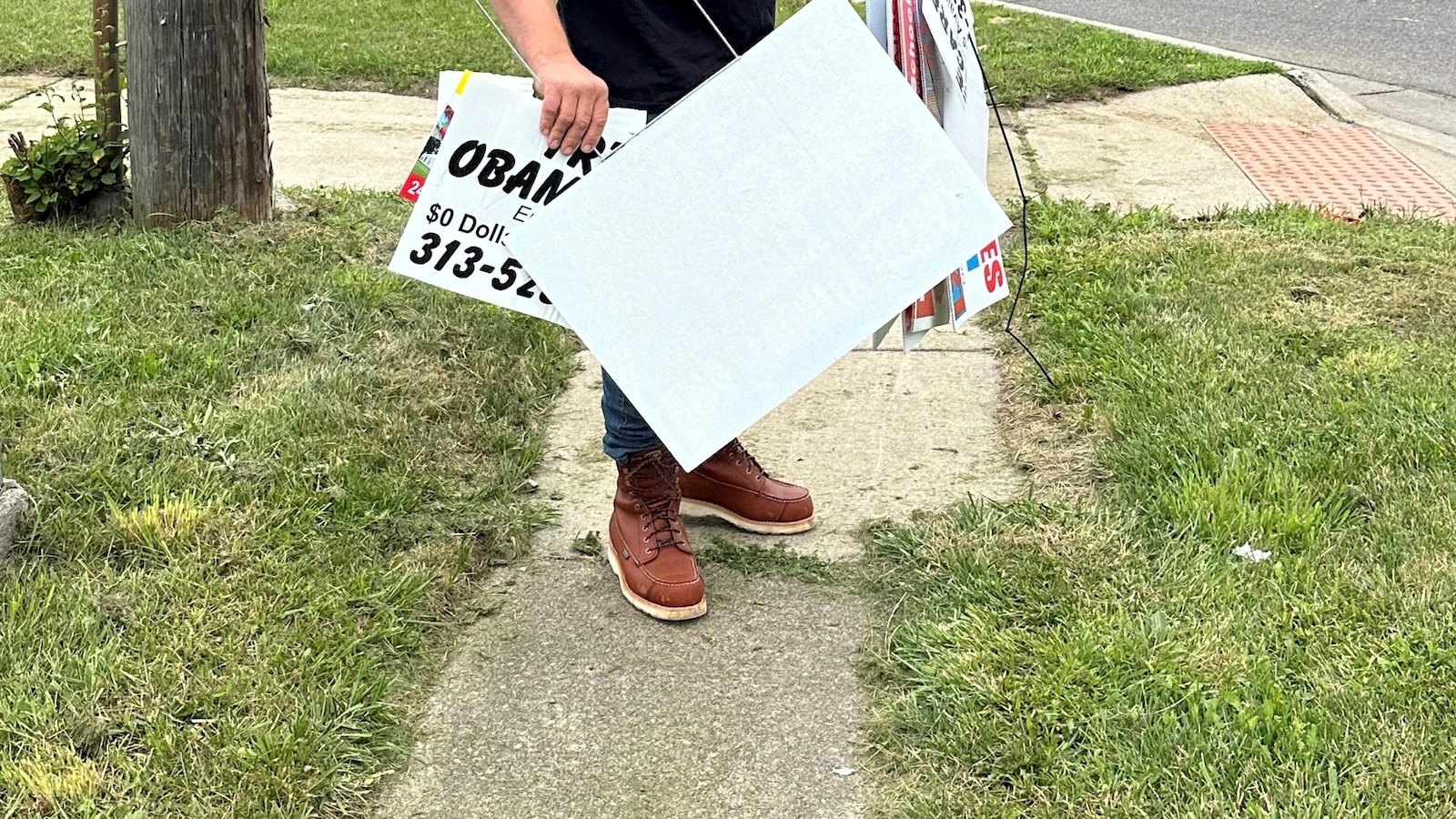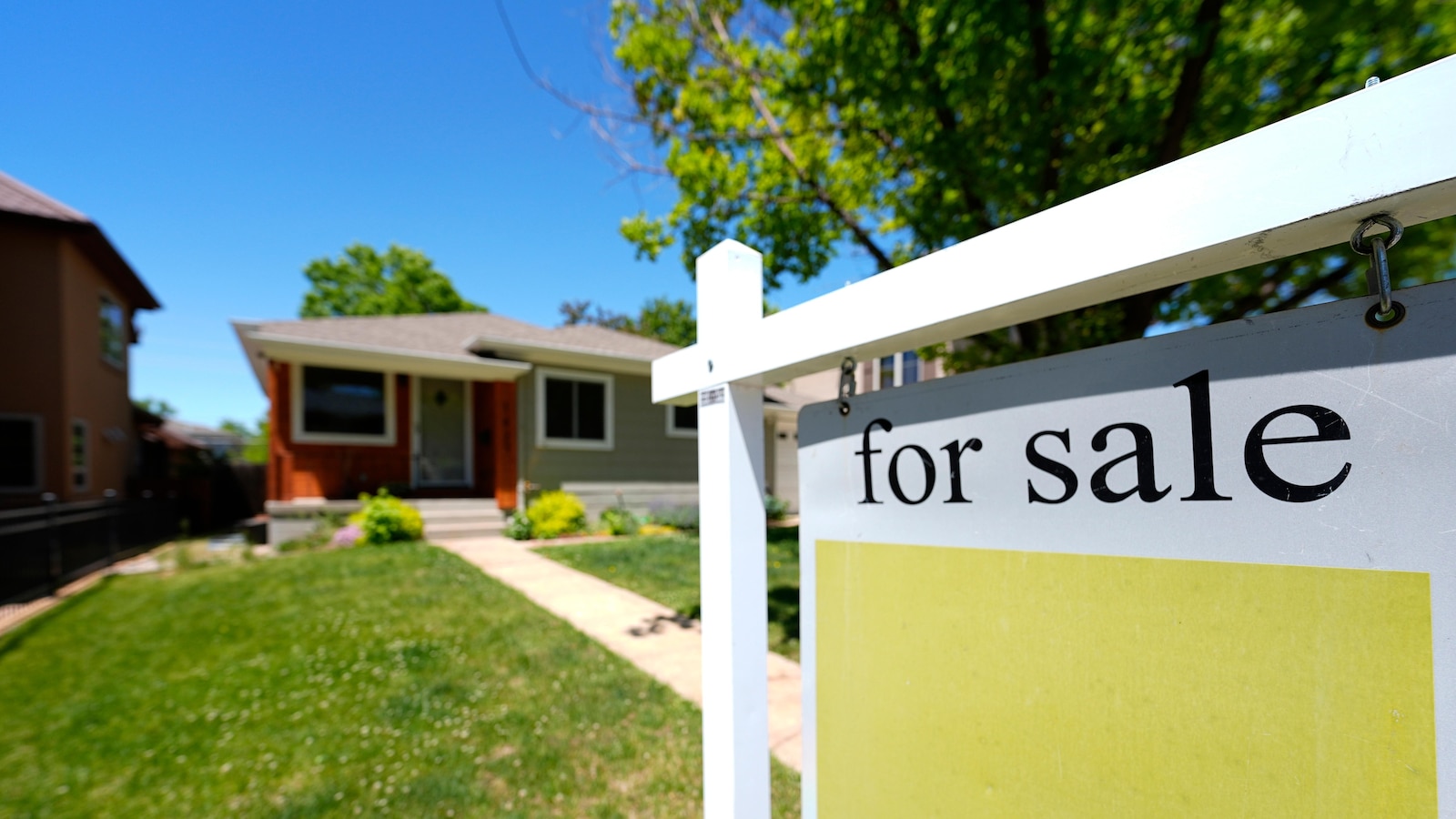
DETROIT — William Shaw has a message for other business owners advertising their services on illegally posted signs in Detroit: “Don’t put them up. They will come after you and your company, and they will make you pay for it.”
As part of court-ordered community service for posting hundreds of signs promoting his suburban Detroit plumbing company, Shaw is required to remove similar placards in the city.
“They’re not going to back down,” Shaw said of Detroit blight enforcement officials as he yanked signs Friday morning from utility and other poles on the city’s northwest side.
Many Detroit street corners and city neighborhoods are plastered with signs offering things like lawn services, event rentals, cash for homes — and even inexpensive health care.
Mayor Mike Duggan’s administration has been aggressive in removing blight. Over the past decade, as the city emerged from the largest municipal bankruptcy in U.S. history, about 25,000 vacant or abandoned structures have been demolished. The city says it also has cleared about 90,000 tons of trash and illegally dumped debris from alleys over the past four years.
The city said that from February 2022 to July 2023, it removed more than 615 “Shaw’s Plumbing” signs. William Shaw has been cited with more than 50 misdemeanors because of it.
A judge ordered Shaw to serve 40 hours of community service with the city’s Blight Remediation Division. Part of that includes removing signs illegally posted by others.
Shaw said Friday he has paid thousands of dollars in fines, but noted that “business is booming” at his shop in Melvindale, southwest of Detroit.
“I was putting up signs in the city of Detroit to promote business illegally, not knowing that I was doing that,” he told The Associated Press. “We put up a lot to promote business. We did it elsewhere in other surrounding cities, as well. And we paid fines in other surrounding cities, as well as Detroit.”
Gail Tubbs, president of the O’Hair Park Community Association, pressed the city to do something about the number of “Shaw’s Plumbing” signs. She calls illegally posted signs nuisances.
“We just don’t want it,” Tubbs said Friday as Shaw took down signs in her neighborhood. “We do not need any more visual pollution and blight in our community. Don’t want it. Don’t need it.”
Shaw said he is being made an example. Others will follow, according to the city.
“Mr. Shaw is just the first. We have a list of the top 10, top 20 violators,” said Katrina Crawley, Blight Remediation assistant director. “This is just the first of many.”
“Quality of life is an issue for all of our residents,” Crawley added, “and having nuisance signs plastered on poles where they’re not supposed to be … is something that we want to deliver a message to the business owners. You must stop. There are legal ways to advertise your business.”
In an effort to combat blight and improve the overall aesthetic of the city, Detroit has recently implemented a crackdown on business owners who are illegally posting signs on their properties. This initiative is part of a larger effort to revitalize the city and create a more welcoming environment for residents and visitors alike.
Illegal signs have long been a problem in Detroit, with many business owners using them as a cheap and easy way to advertise their products or services. However, these signs often contribute to the overall decline of the city’s appearance, adding to the sense of neglect and decay that has plagued many neighborhoods.
The crackdown on illegal signs is being enforced by the city’s Department of Buildings, Safety Engineering, and Environmental Department (BSEED), which has been actively patrolling neighborhoods and issuing citations to violators. Business owners who are found to be in violation of the city’s sign ordinances can face fines of up to $500 per day, as well as potential legal action if they fail to comply with the regulations.
In addition to cracking down on illegal signs, Detroit is also working to provide resources and support for businesses that want to advertise in a legal and responsible manner. The city offers guidance on how to obtain permits for signage, as well as information on alternative advertising methods that can help businesses reach their target audience without contributing to blight.
Overall, the crackdown on illegal signs in Detroit is an important step towards revitalizing the city and creating a more attractive and vibrant urban environment. By enforcing regulations and providing support for businesses, Detroit is taking proactive measures to improve the quality of life for its residents and promote economic growth in the city.


